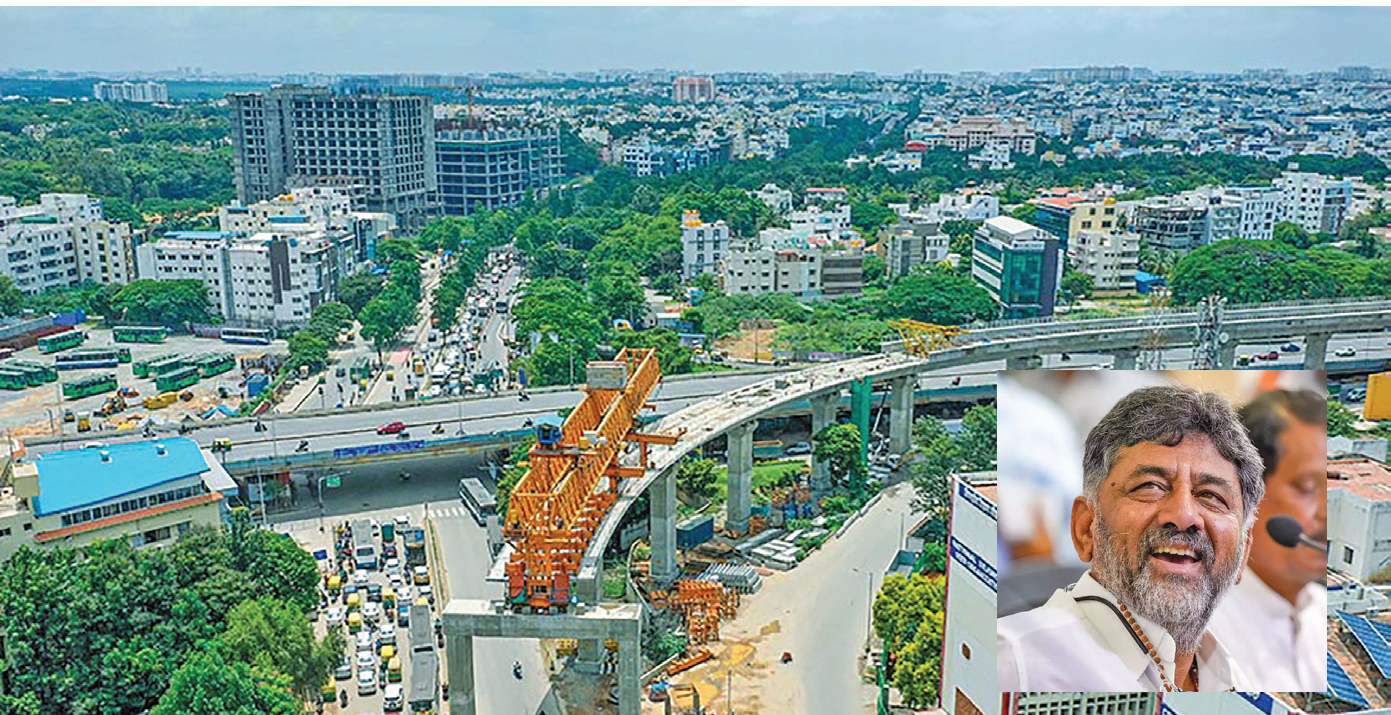
'B'luru not beyond repair', experts say after DCM's remark draws flak
Bengaluru: Karnataka’s Deputy Chief Minister DK Shivakumar recent remark that “Transforming Bengaluru overnight is unfeasible. Even if a divine entity were to intervene, it would not be achievable.” sparked sharp criticism from both the public and urban planning experts. Shivakumar made this remark while speaking at the inaugural function of the ‘Nama Raste Design’ workshop. Many believe that Bengaluru’s problems stem not from divine intervention but from years of mismanagement and misplaced priorities.
Experts argue that with the right investments and policies, the city can still be salvaged. Rajkumar Dugar, representing 'Citizens for Citizens', said: “This is a 100 per cent man-made situation due to wrong priorities.” He questioned the relevance of invoking divine intervention, emphasizing the need to focus on public transportation, sustainable urban development, and waste management, rather than pursuing costly and inefficient initiatives such as tunnel roads and sky decks. Arun Pai, the founder of 'Bangalore Walks', expressed a similar sentiment, emphasizing that a thoughtfully designed and citizen-focused strategy could lead to significant improvements.
He stated, "My initiatives, including footpath runs, footpath walks, and heritage walks, have successfully involved the system in enhancing walkability. Notably, Bengaluru is frequently regarded by Europeans as one of the premier walking destinations. Such events facilitate interactions between elected officials and bureaucrats, who seldom participate in productive dialogues during formal meetings, allowing them to collaboratively seek solutions." Kathyayini Chamaraj, executive trustee of CIVIC-Bangalore, feels that Bengaluru’s public transport woes can be resolved in a short time if tackled efficiently.
“We do not need two or three years to expand the BMTC bus fleet to 18,000 and improve frequency to 10-15 minutes. We must re-route buses using a hub-and-spoke model, ensuring connectivity beyond Majestic and Shivajinagar. Integration with last-mile solutions like shared e-autos and cycle rickshaws is essential. Moreover, the suburban rail system must be expedited with the existing tracks doubled and a circular rail network developed,” she said.
Bengaluru’s road infrastructure is another pressing issue. Roads are often repaired before elections, leaving them riddled with potholes. Poorly planned speed breakers are another issue. Footpaths remain underutilised or encroached upon while arbitrary no-parking zones worsen congestion. Experts urge authorities to focus on maintaining existing roads before constructing new flyovers and tunnels.
A city resident said, “Bengaluru’s water crisis is exacerbated by unchecked real estate growth and encroachments of lakes.” He stressed the need for strict enforcement of rainwater harvesting laws, widespread adoption of recharged wells, and efficient pipeline maintenance. “A systematic approach, including CSR-funded infrastructure and community-led initiatives, could help address these issues,” he said.
 English daily published in Bengaluru & Doha
English daily published in Bengaluru & Doha






